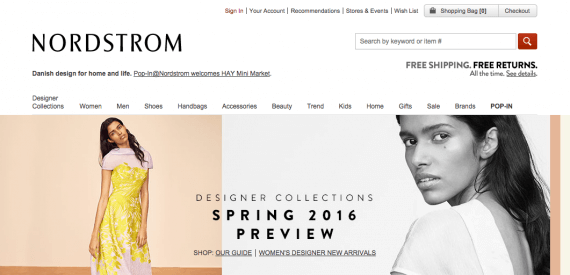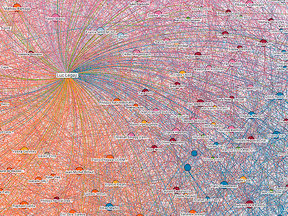Big data can be a big headache. Collecting consumer data is only useful if the information can be leveraged for revenue and profit. Predictive-marketing analytics tools help companies manipulate data to anticipate how shoppers will behave in the future — the things they’re likely to purchase, when they will buy, how much they’ll spend — based on past behavior.
Demand for such tools exists because companies struggle with how to turn big data into meaningful insights. According to a 2015 study “Getting Digital Right” by marketing consulting firm Milward Brown Digital, only 14 percent of respondents were confident about their company’s use of big data. Nevertheless, 67 percent of marketers use consumer behavior as a research tool to influence marketing decisions.
Predictive-marketing analytics tools help companies manipulate data to anticipate how shoppers will behave in the future …
Hiring a specialist to make sense of the data is expensive and expertise is in short supply. Only large companies can afford an internal, customized approach. Several SaaS companies have provided an alternative, offering cloud-based predictive analytics services that eliminate the need to employ a data scientist.
Predictive marketing tools can access data collected from most third-party customer-management software, so no data source is lost. Additionally, advances in machine learning let automated marketing systems build models, deploy lead scores, and learn from results in real time.
Following are some of the advantages of using these predictive marketing tools.
6 Reasons to Use Predictive Marketing Tools
Improves customer engagement and increases revenue. Predictive marketing analytics can save companies money by honing marketing efforts and eliminating campaigns that don’t resonate with shoppers. Analytics can increase conversions with personalized, well-targeted marketing that turns shoppers into buyers. Predictive marketing analytics are particularly helpful in B2B sales, where customer acquisition is often more costly than in B2C. Predictive analytics can sharpen a company’s cross-sell, upsell, or renewal options.
Customer lifecycle analytics (one of the subsets of marketing analytics) can convert one-time purchasers into repeat customers, building greater value from existing customers. Analyst firm Gartner states that it costs five times more to acquire a new customer than to keep an existing one; it makes sense to cultivate loyal customers.
Helps smaller ecommerce merchants stay competitive. Large ecommerce companies like Amazon and Netflix use predictive marketing analytics and recommendation engines to offer customers suggestions for additional purchases. Personalized product recommendations can only be ascertained using predictive analytics. Data scientists are now able to generate machine-learning algorithms that provide real-time, personalized offers for different customers. With the introduction of affordable SaaS solutions, smaller ecommerce companies can now use such tools.
Facilitates more sophisticated segmentation of data. The popularity of using social media and location-based messaging for business means that companies have more sources of information on leads and customer preferences.
Putting all the sources together allows marketers to gather valuable insights. This translates into more sophisticated segmentation, which in turn sharpens the marketing message. As a result, campaigns are more successful at conversions, and budget and resources are focused on who in the market will buy.
For example, Nordstrom’s Technology People Lab team decided to find customer insights from 1.2 billion online product views and 200 million transactions. Data sources included inventory, product metadata, email campaigns, click streams, and purchase data. Customers were scored for their interaction with product segments — viewing, adding to basket, and purchasing. Nordstrom developed an “inferred scoring” system that increased email-to-dollar spent conversion by 25 percent. The team also developed a model that predicted the incidence of repeat customers with an overall accuracy of 76 percent.

Using predictive marketing analytics tools, retailer Nordstrom developed an “inferred scoring” system that increased purchases from email by 25 percent.
Identifies promotions that are better targeted to customers. Algorithms can predict a shopper’s response to a marketing communication, the impact on customer behavior, and any incremental impact of multiple messages. These algorithms allow marketers to choose the best campaign message for each individual and determine the best mix of marketing communications.
Minimizes wasted marketing dollars. Knowing what techniques and what marketing channels work best for each customer lets companies carefully target communications rather than randomly bombarding prospects. With predictive analytics, marketers can determine where to advertise and how to improve email and direct mail campaigns. This results in fewer wasted marketing dollars.
Improves lead scoring. For B2B marketers, better lead scoring is probably the most prominent use of predictive analytics. Lead scoring is a methodology that ranks prospects on a scale that represents the perceived value of each lead to the organization.
To determine lead scores, a company gathers information about prospects to estimate their likelihood of taking a desired action — usually purchase intent. Other measurements include customer lifetime revenue, profitability, and promotion response. Sales departments use scoring to assign priorities to leads for sales contact and follow up. Model-based scoring has proven to be more accurate than manual formulas.
Predictive Marketing Analytics SaaS Providers
B2C ecommerce marketing analytics SaaS providers include the following companies.
- Custora
- RetentionGrid
- Retention Science
B2B SaaS providers include these companies.
- 6sense
- EverString
- Infer
- Lattice Engines
- Leadspace
- Mintigo
Marketing analytics tools will become more powerful in the coming years as machine learning improves. Both B2C and B2B merchants can likely gain a competitive advantage in this early adoption stage by using these services.




